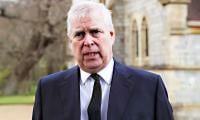War?
AJK Prime Minister Raja Farooq Haider has displayed constant rage at the sufferings in Kashmir. Since the abrogation of Article 370, many of his public pronouncements have provoked debate around the role of Kashmiris in mitigating the current crisis that threatens to raise a spectre for a regional war.
Haider’s politics is different in the sense that he is always blunt and forthright, besides being fervid about a Kashmiri identity that is not only distinct but also yearning to reclaim the agency to decide the future course of its abrogated destiny.
In his latest public address to Kashmiri refugees from the Indian side near Muzaffarabad, he has asked Prime Minister Imran Khan to call a meeting of the Kashmiri leadership and take them into confidence. He also described the government response to the Kashmiri crisis so far as unsatisfactory.
In late November last year, I saw him making a similar avid case during a Kashmir Conference in Islamabad where he asked Kashmiris to take charge of their affairs. During his inaugural address, he asked the Pakistani state to “trust us, keep us at the front and advise us” and warned that “unless and until you allow Kashmiris to fight their case, nothing will happen”.
For the past five months, Haider has consistently raised awareness about the lack of Kashmiri representation or ownership in the Pakistani response to Indian actions in Jammu and Kashmir. Known for his blunt pronouncements, he has spoken both publicly and in closed-door meetings complaining that Kashmiri voices were not being allowed to come to the fore and present their case.
On a couple of public forums, I heard him castigating “those who think they are the epitome of wisdom”, for having no policy or prescription that would reflect the sentiments of Kashmiris. Such open statements have endeared him to a large section of Kashmiris across party lines while being cast as a problematic politician in Islamabad.
Although Raja Farooq Haider was born in Muzaffarabad in 1955, he strongly identifies with the other side of Kashmir where his mother and father belonged. “Our house was located in Downtown Srinagar and my father had told me numerous stories about Srinagar, its localities including Lal Chowk”, he told me. In the events that led to the bifurcation of Jammu and Kashmir State in 1947, his mother, Saeeda Khanum, got stuck in Srinagar along with one of her daughters.
Two years later, in 1949, she joined her husband, Raja Muhammad Haider Khan, after Bakshi Ghulam Muhammad (later prime minister of Jammu and Kashmir) facilitated her travel to Lahore via New Delhi. Khanum joined politics and became the first female member of the AJK Legislative Assembly.
During my recent interaction with him at his home in Muzaffarabad, he was extremely worried that the August 5 action was meant to erase Kashmir’s culture and history, forever fearing that the Kashmir his parents told him about will not be there in a decade.
“The language of Kashmiris will be finished. The culture of Kashmiris will be destroyed. The roots of Kashmiris will be slashed. The Kashmiri culture that we take pride in will remain no more. Even the famed cuisine, Wazwan, will be replaced by the menus of Haryana and Punjab. Our Kashmiri dress and small things that form part of our cultural milieu will be gone. India will impose the culture of Bihar, Maharashtra and Rajasthan”.
Such concern was articulated by many others in AJK – from serving bureaucrats to journalists and commoners to the refugees who still have relatives living on the other side. It was after a long time that I found considerable support for a Kashmiri-led insurgency as a possible way forward. Several people, including one of the drivers of a senior politician who is in the current government, told me they were ready to cross the LoC to wage a war as the problem cannot be solved by managing public outrage and emotions through what he described as cosmetic gestures.
When I mentioned this to Haider he told me an interesting incident from the mid-August last year. Some youth from his constituency – Chakoti on the Line of Control – whose families have been his supporters and voters for many decades came to see him. They were angry at him and castigated him: “Aren’t you ashamed of yourself? You are sitting in the PM House and don’t you have any conscience as to what is happening on the other side of the border. We are keen to cross over to the other side to help our brothers and sisters”.
I found a similar sentiment on the streets of Muzaffarabad where people talked about a renewed insurgency. While this might be a natural reaction to assuage emotions, it is a dangerous path that would further inflame the situation and provoke a much bigger disaster.
There is a growing belief that war is inevitable. Raja Farooq Haider believes that India’s Hindutva leadership is geared for war because they believe India’s current geographic size is too small for their ambitions. Therefore, “there has to be a confrontation between India and Pakistan whether on Kashmir, water or any other issue. The war between India and Pakistan is inevitable. When it will happen, I cannot predict, but there will be a complete war which will decide the future of our region”.
So are you ruling out political struggle, I asked. “We have to continue with our political and diplomatic struggle as well. But what we have seen so far in the past 72 years, I believe war is inevitable between India and Pakistan.”
Twitter: @murtaza_shibli
-
 Keith Urban, Nicole Kidman's Daughters Choose One Parent To Side With
Keith Urban, Nicole Kidman's Daughters Choose One Parent To Side With -
 Sarah Ferguson's Hidden Trait Exposed As Expert Dismantles Shadow Side To Her Personality
Sarah Ferguson's Hidden Trait Exposed As Expert Dismantles Shadow Side To Her Personality -
 Sarah Ferguson Backed By Powerful Friends Amid Epstein Fallout
Sarah Ferguson Backed By Powerful Friends Amid Epstein Fallout -
 PINK’s Latest Move Sparks Speculations About Replacing Major Celebrity On Show
PINK’s Latest Move Sparks Speculations About Replacing Major Celebrity On Show -
 Planetary Parade 2026: Here's How To See Six Planets Aligning Today
Planetary Parade 2026: Here's How To See Six Planets Aligning Today -
 Christopher Nolan Reveals Why He's A Fan Of 'Fast & Furious' Movies
Christopher Nolan Reveals Why He's A Fan Of 'Fast & Furious' Movies -
 Ben Affleck Unable To Accept A New Lover Post Jennifer Lopez Divorce As He Still Grieves End Of Bennifer 2.0
Ben Affleck Unable To Accept A New Lover Post Jennifer Lopez Divorce As He Still Grieves End Of Bennifer 2.0 -
 Why Is Demi Moore Being Called Ozempic Victim?
Why Is Demi Moore Being Called Ozempic Victim? -
 Kaley Cuoco Makes Honest Comparison Of 'Big Bang Theory' And 'Charmed' Gigs
Kaley Cuoco Makes Honest Comparison Of 'Big Bang Theory' And 'Charmed' Gigs -
 Robert Picardo Shares Surprising Reaction On Returning To The 'Star Trek' Franchise
Robert Picardo Shares Surprising Reaction On Returning To The 'Star Trek' Franchise -
 AI Feud Deepens As Musk Targets OpenAI Over Safety Concerns
AI Feud Deepens As Musk Targets OpenAI Over Safety Concerns -
 'Paranoid' Andrew Fears Assassination: 'Panic Is Spiralling'
'Paranoid' Andrew Fears Assassination: 'Panic Is Spiralling' -
 Israeli Minister Hits Back At Prince Harry
Israeli Minister Hits Back At Prince Harry -
 Thousands Of Google Accounts Could Be Misused By Hackers: Report
Thousands Of Google Accounts Could Be Misused By Hackers: Report -
 Prince Harry Ignores Question About Andrew
Prince Harry Ignores Question About Andrew -
 Ryan Gosling On What Makes 'Star Wars: Starfighter' Different From Other Franchise Films
Ryan Gosling On What Makes 'Star Wars: Starfighter' Different From Other Franchise Films



